Mary Poppins, That Joyless Scold
When It Comes to P.L. Travers’s Book, It’s Not a Jolly Holiday with Mary
During the filming of Mary Poppins, Julie Andrew had to do several flying stunts for which she was suspended in air by cables and rigging.
In one of the final takes of the entire production, Andrews found herself hoisted aloft while she waited on the crew. “Suddenly,” she said in her 2019 memoir Home Work, “I felt my supporting wires drop by about a foot.” Before the crew could properly bring her down to check the rigging, the wires gave out.
“I fell to the stage like a ton of bricks,” she said. “Fortunately, I wasn’t harmed . . . but I landed hard and was quite shaken.” She was more shaken. Andrews was royally miffed. “I have to admit,” she said, “I let fly a stream of colorful expletives.”
I’ve read a few comments about this incident to the effect of “How very unlike Mary Poppins!”—to which I object, “Have you read the book?!” In the hands of her author, P.L. Travers, Mary Poppins may not swear like a sailor, but she’s nearly as surly.
Gruff, ill-tempered, impatient—these are not adjectives I would have imagined applying to the magical nanny. I don’t think anyone familiar with the 1964 Disney movie would. Just last week actor Daniel Day-Lewis confessed his infatuation, dubbing Mary Poppins one of the greatest films ever. “What a doll,” he said in an interview. “I had a crush on Julie Andrews.” Only a masochist could say the same about Travers’s original.
Meeting the Other Mary
I read to my youngest most every night. In the last few months we’ve worked our way through Little House in the Big Woods, Mr. Popper’s Penguins, and most of Roald Dahl. Wanting to change it up before tackling Danny, the Champion of the World, Naomi and I opted for Mary Poppins.
I’ve read enough books that have leapt to the screen to know that sometimes only hopes and wishes bind the two products. Still, I wasn’t quite prepared for the difference between the Hollywood Poppins and the Literary Poppins.
When Mary arrives to Number Seventeen, Cherry-Tree Lane, she’s somewhat curt with Mrs. Banks and the children, Jane and Michael. She’s brusque, imperious, and intimidating. But in the movie, as opposed to the book, it’s all a put-on. Within minutes, Movie Mary’s icy formality melts away into pure goo as she turns the children’s life into game. In the book? Not so much. Mary’s arrogant, self-satisfied, and mostly annoyed with everyone except her own reflection—over which she obsesses.
I knew Naomi and I were in for a different experience when Poppins and Bert run off to their imaginary romp in the sidewalk chalk and leave the kids at home.
When Mary returns, this endearing moment unfolds:
When she came back from her Day Out, Jane and Michael came running to meet her.
“Where have you been?” they asked her.
“In Fairyland,” said Mary Poppins.
“Did you see Cinderella?” said Jane.
“Huh, Cinderella? Not me,” said Mary Poppins, contemptuously. “Cinderella, indeed!”
“Or Robinson Crusoe?” asked Michael.
“Robinson Crusoe—pooh!” said Mary Poppins rudely.
“Then how could you have been there? It couldn’t have been our Fairyland!
Mary Poppins gave a superior sniff.
“Don’t you know,” she said pityingly, “that everybody’s got a Fairyland of their own?”
And with another sniff she went upstairs to take off her white gloves and put the umbrella away.
Not quite a jolly holiday. We can smile, as I did, at her gruff mood—though part of my amusement was actually in sizing up the distance between the Disney character and the joyless scold Naomi and I were now encountering on the page. Chapter after chapter, it’s much the same.
Mean Mary
While Movie Mary is impatient and annoyed by the unhinged hilarity of Uncle Albert (Mr. Wigg in the book) floating around in the air, propelled by guffaws, she eventually relents. Meanwhile, in the book, she’s perpetually cross and even mean—causing, for instance, Miss Persimmon to float up against her will and deliver a pot of tea. Then Literary Mary pretends the whole episode never happened at all.
When the kids leave, Michael asks if Mary’s uncle is always “bouncy and boundy and laughing and going up in the air.”
“Up in the air?” Mary Poppins’s voice was high and angry. “What do you mean, pray, up in the air?”
Jane tried to explain.
“Michael means—is your Uncle often full of Laughing Gas, and does he often go rolling and bobbing about on the ceiling when—”
“Rolling and bobbing! What an idea! Rolling and bobbing on the ceiling! You’ll be telling me next he’s a balloon!” Mary Poppins gave an offended sniff.
“But he did!” said Michael. “We saw him.”
“What, roll and bob? How dare you! I’ll have you know that my uncle is a sober, honest, hard-working man, and you’ll be kind enough to speak of him respectfully. And don’t bite your Bus ticket! Roll and bob, indeed—the idea!”
Michael and Jane looked across Mary Poppins at each other. They said nothing, for they had learnt that it was better not to argue with Mary Poppins, no matter how odd anything seemed.
The scene itself is perfectly amusing, but Literary Mary—with her “offended sniff” and “how dare you”—is nothing like Movie Mary. The whole passage begins with Mary on the wrong foot. “If I have any more questions we will just go Back Home,” she says with “her usual sniff of displeasure” when Michael asks about her uncle’s name. Usual. Displeasure.
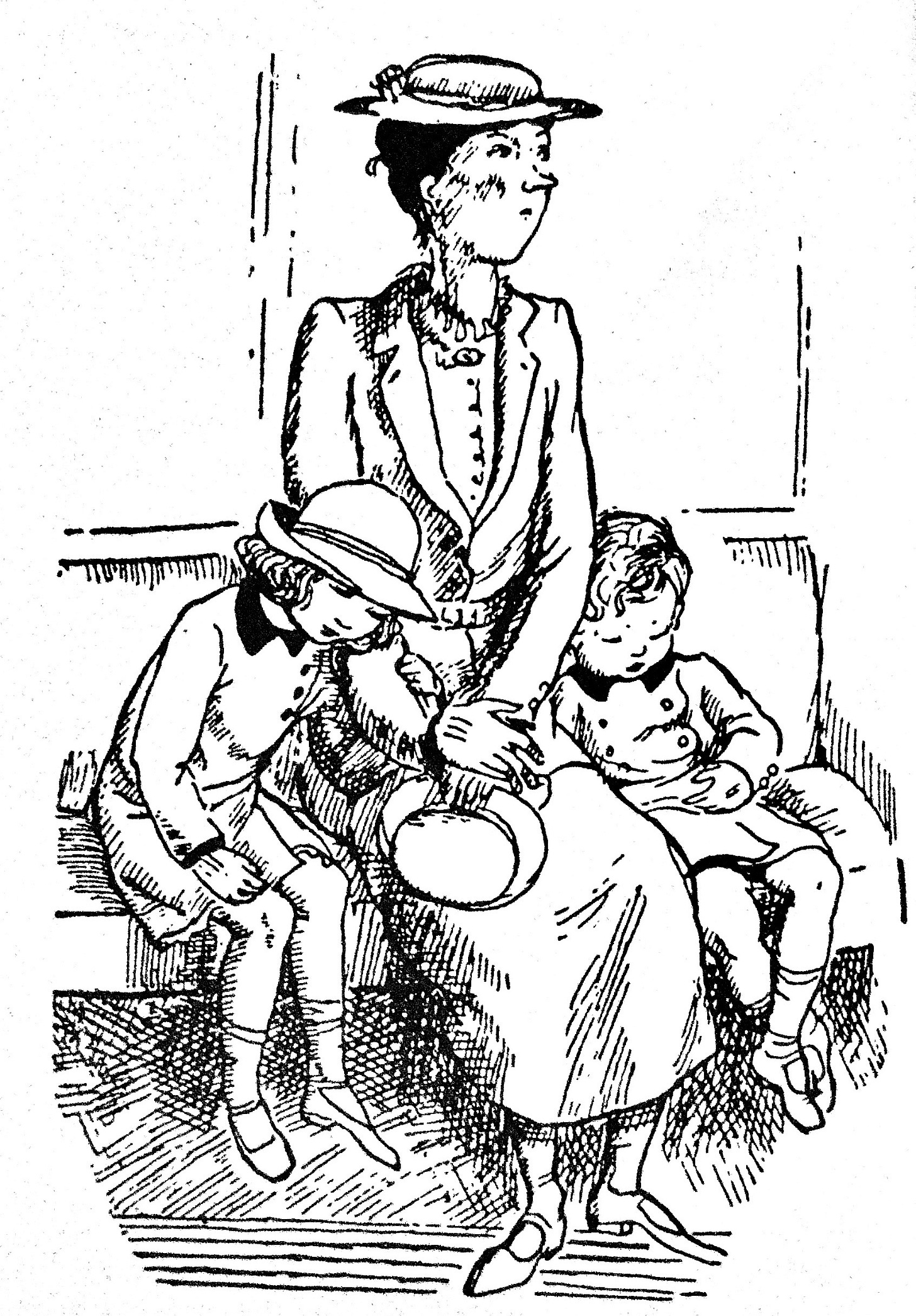
It gets no better while grocery shopping. Literary Mary drags Jane and Michael to the butcher, the fishmonger, and the baker. When the butcher tries to strike up a conversation, he stops mid-sentence. Why?
“He broke off suddenly,” says Travers, “for he had caught sight of Mary Poppins’s face. The expression on it was awful. And the Butcher found himself wishing there was a trapdoor in the floor of his shop that would open and swallow him up.” He then sheepishly packages up some sausage, passes it to Mary, and asks about anything else. Mary gives “a haughty sniff” and tells him she wants nothing else. Then she turns to go “in such a way that the Butcher knew he had mortally offended her.” She next plagues the fishmonger with similar airs, leaving in a huff.
When Michael complains about the errands, Mary “turned and regarded him with something like disgust” and then “haughtily” tells him they’re going to buy gingerbread, an escapade which ends in Mary insulting the skill of her colleague, the Banks’s housekeeper and cook, Mrs. Brill:
“I’m afraid we must be off now, Mrs. Corry,” said Mary Poppins. “There is Baked Custard for lunch, and I must be home in time to make it. That Mrs. Brill—”
“A poor cook?” enquired Mrs. Corry interrupting.
“Poor!” said Mary Poppins contemptuously. “That’s not the word.”
Like all kids, the Jane and Michael complain about going out. Literary Mary doesn’t tolerate it for a moment. As they grumble, she glares. “Humph!” says Mary at one point as the children dawdle. “You two look a picture, I must say! Stravaiging along like a couple of tortoises and no polish on your shoes.” You can imagine Hollywood Mary saying something like this with a bit of lighthearted teasing. Not Literary Mary. She “was looking with contempt at them both.”
As Travers says elsewhere, “All day long Mary Poppins had been in a hurry, and when she was in a hurry she was always cross.” To tell you the truth, I have no trouble imagining this woman swearing up a storm.
Happy Mary? Unhappy Author
How did Walt Disney transform this sour miss into the chipper nanny Daniel Day-Lewis fell in love with? The Irish poet George Russell was taken with both P.L. Travers and her creation.
“Had [Mary Poppins] lived in another age, in the old times to which she certainly belongs, she would undoubtedly have had long golden tresses, a wreath of flowers in one hand, and perhaps a spear in the other,” Travers reported Russell as saying. “Her eyes would have been like the sea, her nose comely, and on her feet winged sandals.” He then compared Poppins to the Hindu goddess Kali.
From Kali to Julie Andrews is quite a stretch. Travers hated how Walt Disney pulled it off and cried during the premier of the movie—not tears of joy but, rather, regret at the saccharine, technicolor travesty exploding on screen.
Disney’s daughters loved the books and dogged their dad, who in turn dogged Travers, to make a movie. She relented. Previous adaptation attempts had come to nothing, but Disney offered so much money Travers couldn’t refuse. To her later chagrin—far too soft a word, actually—she ceded creative control over the production.
“I would have preferred that ‘Mary Poppins’ should be filmed by the British because, well, never mind, let’s not go into that,” she said a year after the premier when speaking to some American children. Elsewhere she did go into it. She hated the animations, the music, and most of all she hated how Disney transformed her stern, spiky Mary into the sugary, solicitous nanny the rest of the world seemed to love.
“She never wastes time being nice!” Travers complained, which is a line taken directly from the book: “Mary Poppins never wasted time being nice.” And Travers never again wasted time with Disney, refusing to let him adapt any of the subsequent books.
I should add, Naomi’s never seen the movie, but she loved the unloveable scold in Travers’s book. Me? I prefer Roald Dahl.
Thanks for reading! If you enjoyed this post, please hit the ❤️ icon, share it with a friend, and 💬 discuss it in the comments below.
More remarkable reading is on its way. Don’t miss out. Subscribe for free below.
Film adaptations are notoriously tricky. Here’s my look at P.D. James’s Children of Men on page and screen:
Make sure to tour my new book, The Idea Machine: How Books Built Our World and Shape Our Future, and discover the preorder bonuses!


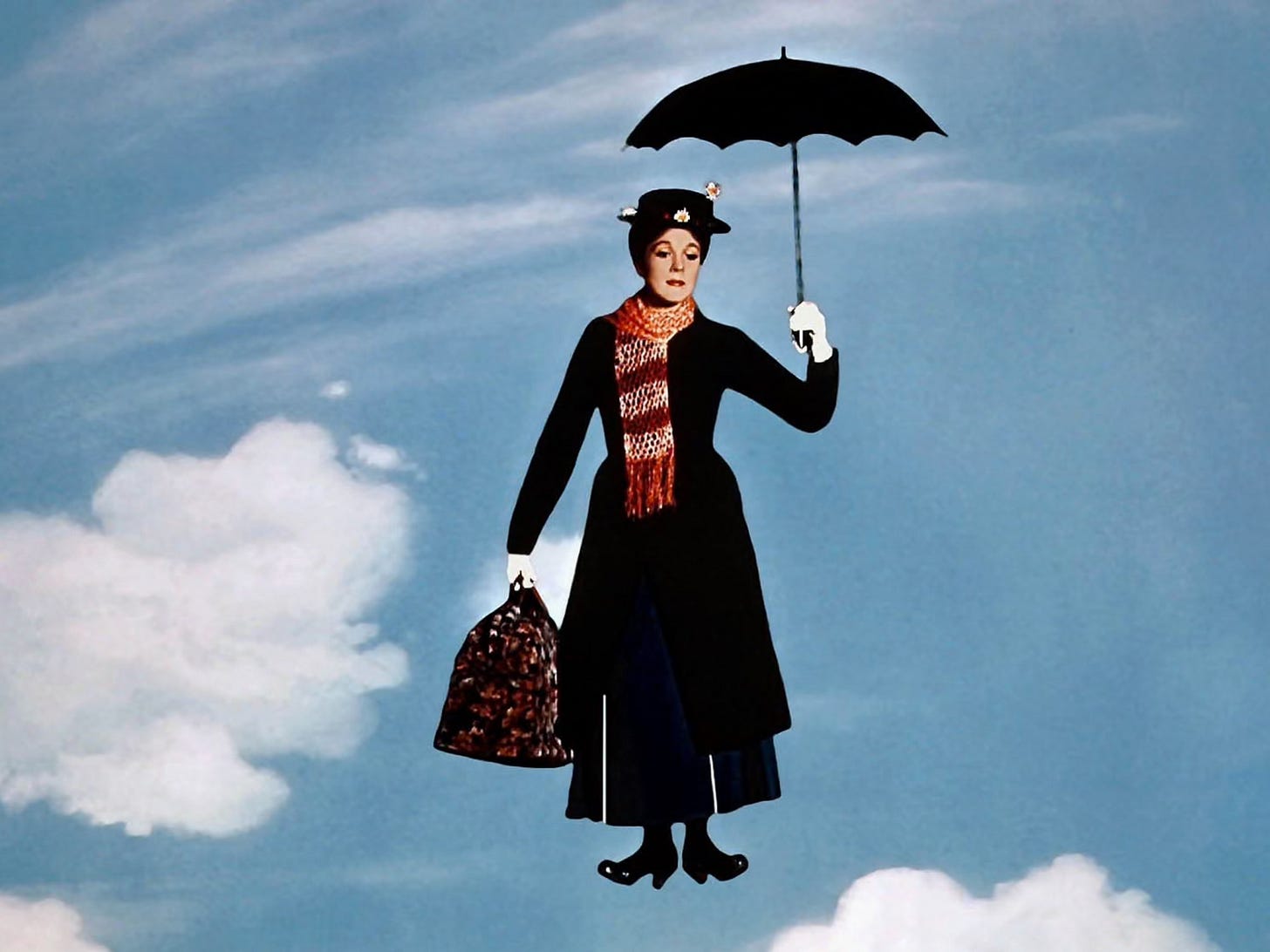
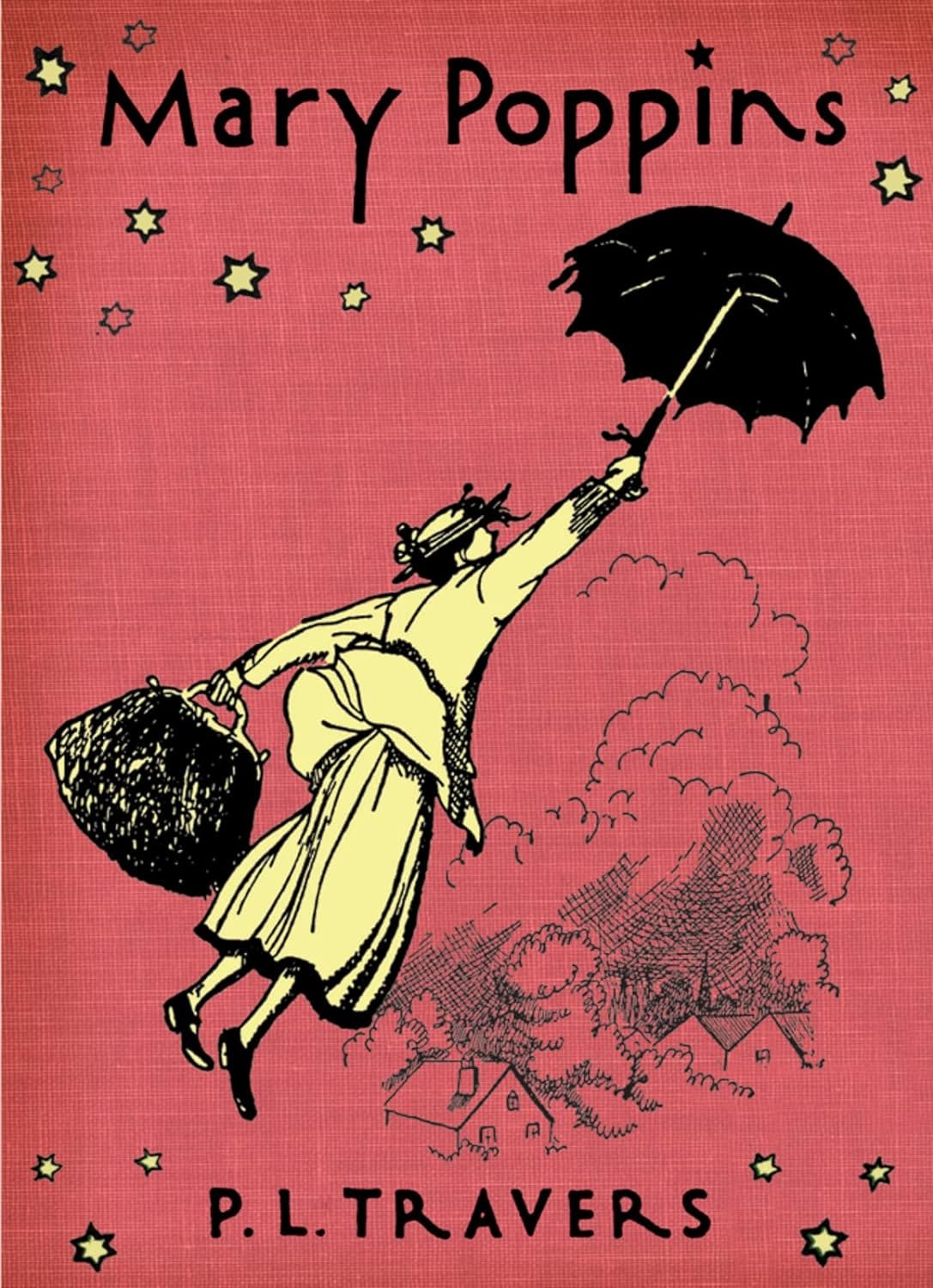
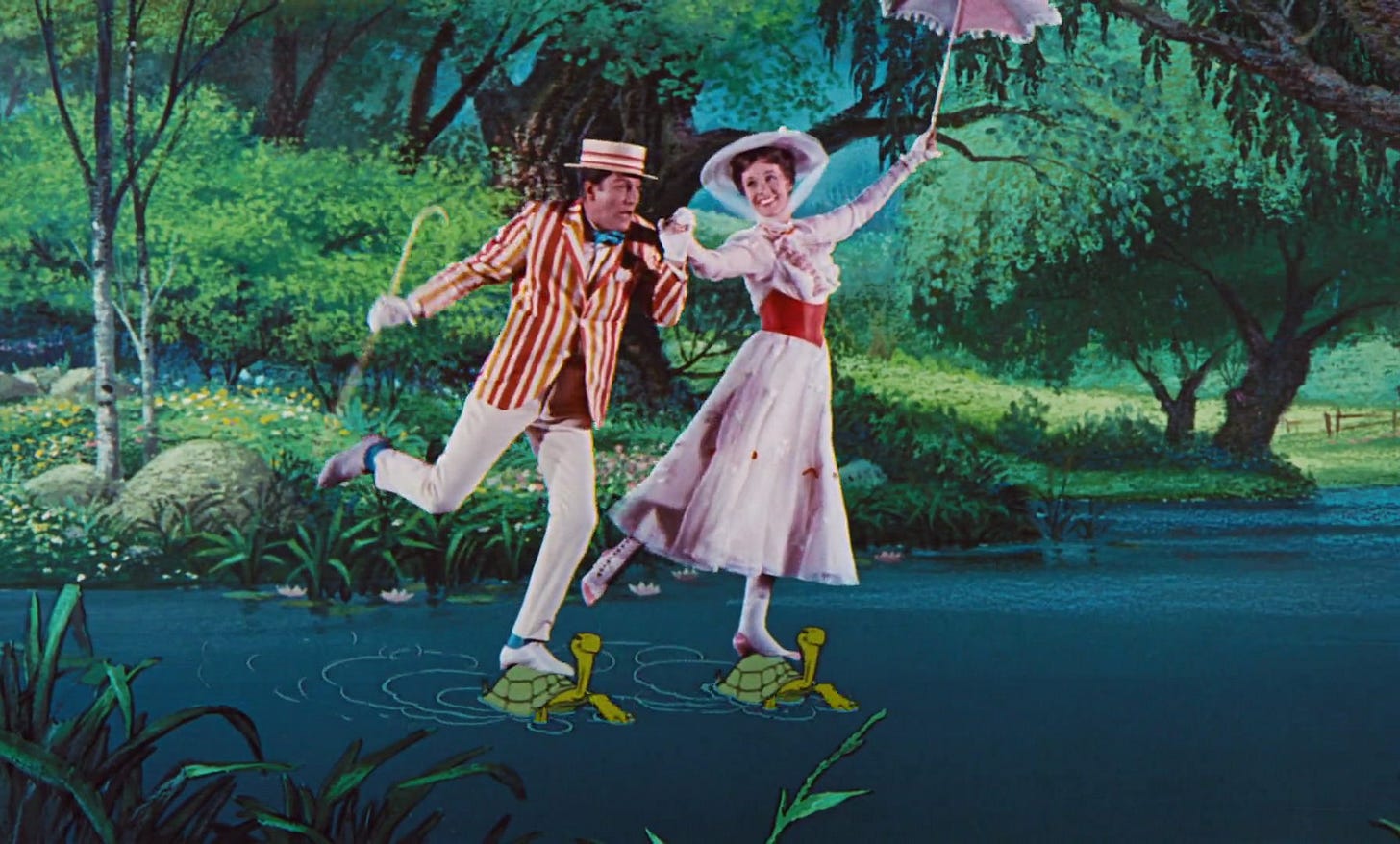
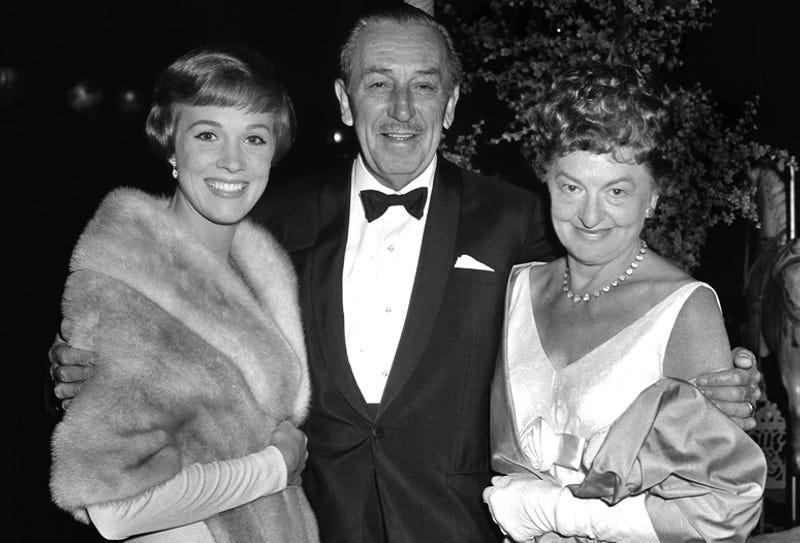

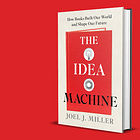
I've told my husband many times, movie Mary Poppins is all well and good, but literary Mary Poppins is an eldritch god, and it's best not to cross her.
The recent movie "Saving Mr. Banks" discusses the production of the film and goes into detail exploring the difficult relationship between Disney and Travers.